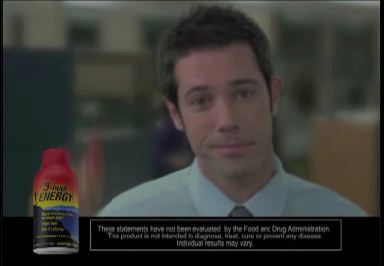More Experts Call BS On Supposed Benefits Of Energy Drinks

In 2011, Consumer Reports found that 5-Hour Energy is really no more effective than drinking coffee.
“If you had a cup of coffee you are going to affect metabolism in the same way,” Dr. Robert W. Pettitt, an associate professor at Minnesota State University in Mankato, tells the NY Times, which points out that for the price of a $2.99 12-oz. can of an energy drink, you can get the same amount of caffeine as you’d find in a $.30 NoDoz tablet, and less caffeine than you’d get from a 12-oz, $1.85 Starbucks coffee.
Dr. Roland Griffiths from Johns Hopkins University refers to energy drinks as “These are caffeine delivery systems… They don’t want to say this is equivalent to a NoDoz because that is not a very sexy sales message.”
Then there are the non-caffeine ingredients in these energy drinks — the ingredients that makers often point to as the real energy boosters inside the beverage. Back in 2011, our cohorts at Consumer Reports took a hard look at 5-Hour Energy and found “little if any research showing that other ingredients on the label – including B vitamins and amino acids – would give the average person a boost.”
The Times reports on the efforts of a University of Wisconsin researcher who tried to find information about trials on an ingredient in some of these drinks called “glucuronolactone” but could only find a pair or two 40-year-old studies from Japan, in which researchers noted an improvement in the swimming abilities of rats who were injected with large doses of the substance.
“I have no idea what it does in energy drinks,” says the Johns Hopkins doctor.
The Times points out that while beverage companies tout that taurine, the ingredient that rose to prominence with the popularity of Red Bull, has been given a clean bill of health by the European Food Safety Authority, they gloss over the fact that this same agency has said there is a lack of scientific evidence backing up claims that taurine provides any benefits, or that the European Commission will not allow Red Bull and others to claim that taurine helps maintain mental function and heart health and reduces muscle fatigue.
Check out the entire report over at NYTimes.com
Want more consumer news? Visit our parent organization, Consumer Reports, for the latest on scams, recalls, and other consumer issues.

